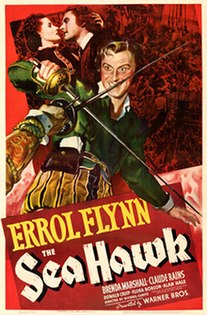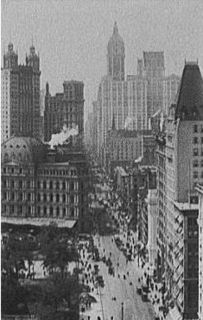
James Francis Thorpe was an American athlete and Olympic gold medalist. A member of the Sac and Fox Nation, Thorpe became the first Native American to win a gold medal for the United States. Considered one of the most versatile athletes of modern sports, he won Olympic gold medals in the 1912 pentathlon and decathlon, and played American football, professional baseball, and basketball. He lost his Olympic titles after it was found he had been paid for playing two seasons of semi-professional baseball before competing in the Olympics, thus violating the amateurism rules that were then in place. In 1983, 30 years after his death, the International Olympic Committee (IOC) restored his Olympic medals.

Sir Anthony Robinson is an English actor, comedian, author, presenter and political activist. He played Baldrick in the BBC television series Blackadder and has hosted several historical documentaries including the Channel 4 programmes Time Team and The Worst Jobs in History. Robinson was a member of the Labour Party and has served on its National Executive Committee. He has also written 16 children's books.

Ian James Thorpe, is an Australian retired swimmer who specialised in freestyle, but also competed in backstroke and the individual medley. He has won five Olympic gold medals, the most won by any Australian. With three gold and two silver medals, Thorpe was the most successful athlete at the 2000 Summer Olympics in Sydney, Australia.

Alexander Frederick Douglas-Home, Baron Home of the Hirsel, was a British Conservative politician who served as Prime Minister of the United Kingdom from October 1963 to October 1964. He was the last Prime Minister to hold office while a member of the House of Lords, before renouncing his peerage and taking up a seat in the House of Commons for the remainder of his premiership. His reputation, however, rests more on his two spells as Britain's foreign minister than on his brief premiership.

John Jeremy Thorpe was a British politician who served as the Member of Parliament for North Devon from 1959 to 1979, and as leader of the Liberal Party between 1967 and 1976. In May 1979 he was tried at the Old Bailey on charges of conspiracy and incitement to murder, arising from an earlier relationship with Norman Scott, a former model. Thorpe was acquitted on all charges, but the case, and the furore surrounding it, ended his political career.

The Sea Hawk is a 1940 American black-and-white swashbuckling adventure film from Warner Bros. that stars Errol Flynn as an English privateer who defends his nation's interests on the eve of the launch of the Spanish Armada. The film was the tenth collaboration between Flynn and director Michael Curtiz. Its screenplay was written by Howard Koch and Seton I. Miller. The rousing musical score by Erich Wolfgang Korngold is recognized as a high point in his career. The film was both an adventure and a period piece about Elizabethan England's struggles with Spain. It was also meant as a deliberately pro-British propaganda film to both build morale during World War II, and to influence the American public into having a more pro-British outlook. King Philip was seen as "an obvious" "allegorical Hitler". (The same theme had been visited in Alexander Korda's film Fire Over England, released three years earlier, before World War II actually started).
Billy Thorpe and the Aztecs were an Australian rock band formed in Sydney, New South Wales. The group enjoyed success in the mid-1960s, but split in 1967. They re-emerged in the early 1970s to become one of the most popular Australian hard-rock bands of the period. Thorpe died from a heart attack in Sydney on 28 February 2007.
Vincent Melouney is an Australian guitarist, vocalist, and songwriter. He joined the bands Billy Thorpe & the Aztecs, Vince & Tony's Two, Bee Gees, Fanny Adams and he formed his own band: the Vince Melouney Sect.

Aldringham is a village in Suffolk, England. The village is located 1 mile south of Leiston and 3 miles northwest of Aldeburgh close to the North Sea coast. The parish includes the coastal village of Thorpeness. The mid-2005 population estimate for Aldringham cum Thorpe parish was 730.

William Richard Thorpe, AM known as Billy Thorpe, was an English-born Australian singer-songwriter, producer, and musician. As lead singer of his band Billy Thorpe & the Aztecs, he had success in the 1960s with "Blue Day", "Poison Ivy", "Over the Rainbow", "Sick and Tired", "Baby, Hold Me Close" and "Mashed Potato"; and in the 1970s with "Most People I Know Think That I'm Crazy". Featuring in concerts at Sunbury Pop Festivals and Myer Music Bowl in the early 1970s, the Aztecs also developed the pub rock scene and were one of the loudest groups in Australia.
The Moody Boys was a UK house music production and remix outfit active since 1988, consisting of Tony Thorpe and, until 1992, Jimmy Cauty.

Cassie Brady is a fictional character from the NBC daytime soap opera, Days of Our Lives. Cassie and Rex, her twin brother, first appeared in Salem after a 4th of July meteor shower in 2002 and believed to be aliens. They are the children of Roman Brady and Kate Roberts.

Anthony Thorpe is an English former professional footballer and manager of Melton Town

The Deceiver is a 1931 American pre-Code mystery film directed by Louis King. It was written by Jack Cunningham, based on a short story called "It Might Have Happened" by Bella Muni and Abem Finkel. The film stars Lloyd Hughes, Ian Keith and Dorothy Sebastian. John Wayne makes a minor appearance as a stand-in playing Ian Keith's corpse. It featured a lot of song and tap dance numbers by Negro performers in an act billed as "Hot Harlem". The film premiered on November 21, 1931.
The Oregon Trail is an American western television series that aired on NBC from September 21 until October 26, 1977, starring Rod Taylor as widower Evan Thorpe who leaves his Illinois farm in 1842 to take the Oregon Trail to the Pacific Northwest. The show also stars Andrew Stevens, Tony Becker, and Gina Marie Smika as Thorpe's children. Darleen Carr stars as Margaret Devlin, one of the passengers on the wagon train, and Charles Napier portrays Luther Sprague, a frontier scout recruited by Thorpe. The series was filmed in the Flagstaff, Arizona area.
Smarty, known in the United Kingdom as Hit Me Again, is a 1934 American Pre-Code comedy film directed by Robert Florey and starring Warren William and Joan Blondell. It was adapted from F. Hugh Herbert's play by Carl Erickson (writer).
"One more heave" was a slogan used by British Liberal Party leader Jeremy Thorpe during the October 1974 general election and a phrase used to describe the political strategy of John Smith, leader of the Labour Party from July 1992 until his death in May 1994.

Cheating Cheaters is a 1934 American comedy film directed by Richard Thorpe and written by James Mulhauser, Allen Rivkin and Gladys Buchanan Unger. The film stars Fay Wray, Cesar Romero, Minna Gombell, Henry Armetta, Francis L. Sullivan and Hugh O'Connell. The film was released on November 5, 1934, by Universal Pictures.

The Midnight Lady is a 1932 American pre-Code crime film directed by Richard Thorpe and starring Sarah Padden, John Darrow and Claudia Dell. It is also known by the alternative title of Dream Mother.

Still Unwinding is the seventh studio album by the English band The Rubettes. It was released on the Polydor label in October 1978, just seven months after their previous studio album Sometime In Oldchurch. It was the last album the band released in the 1970s - their next album Shangri'la, despite being recorded in 1979, was not released until 1992.













